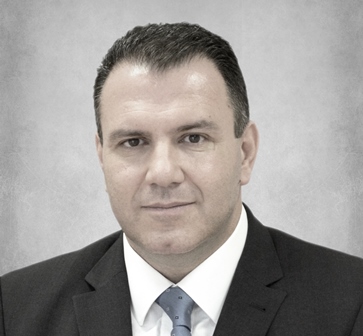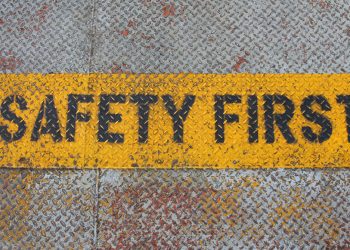In summer 2017 the US Navy was striving to keep its ships from running into cargo vessels with human element pointed out among others as the root cause, reminding us that the worrisome issue of such maritime accidents and errors still occurs. Is it because we lean towards a quick fix of complex safety problems? Currently, there has been a considerable debate over Human and Organizational Performance (HOP), an approach to safety, the rising popularity of which is called by some the anti- behavior based safety (BBS)!
Genuinely, HOP and BBS can’t stand alone; behavior provides a framework to understand human performance in shipping industry. Specifically, a BBS process highlights the employee’s behavior in reaction to surrounding environmental events. In that, operators hire people who fundamentally make decisions under time pressure or other work conditions such as equipment failures, process breakdowns, poor lighting etc; conditions that may push the worker to a problem, or even to fatality. There are various kinds of accidents; from injury fatality, fire explosions and weather damages, to environmental or machinery incidents, groundings and collisions. It is very convenient to put the blame on humans. Usually operators use it as takeaway without mentioning that those who designed these ships are also humans. Under this perspective, everything must be considered as human error and eventually this will be the conclusion of any search for causes, recognizing what should have happened and what processes should have been followed as part of the investigations, missing though the underlying causes that must be addressed.
Certainly, learning from failure is very important but it’s not solving the problem at all. In order to minimize risk and maximize safety, we need a more proactive approach of safety, we need to define safety as the presence, not the absence of a thing. The science of behavior should be considered as the foundation to create safer voyages. The real question now is not whether HOP is the anti-BBS – it goes without saying that it is not – but how to approach the elements that affect decision making and generic performance. Organization and management systems must be strongly put in place by shipping companies in order to minimize human error and prevent potential recurrence onboard. Giving that crew members are part of fixing the problem, if we can’t control behavior we can’t solve the problem. HOP accepts human error as inevitable and looks to systems to minimize error. That’s why HOP does not exist without BBS. Behavior is part of the system; the system creates behavior and it is still out there in the high seas!
Some believe that by following the trend of more alignment of fees, promoting the rules and punishing those who may disobey will reduce accidents. However, the key player in the whole matter is resilience. US Navy proposed more sleep and training for sailors after the avoidable ship collisions. Things leading to fatality are directly linked with the lack of understanding human behavior. Therefore, blame is not useful, understanding why people may block action is. Ship operators and the industry as a whole need to define what goes right onboard and repeat it!
About Apostolos Belokas
 Apostolos is a Maritime Safety, Quality & Environmental Expert, Consultant, Trainer and Project Manager with more than a 20-year background in shipping as Technical, Marine, Safety & Training Superintendent and Consultant. He entered the industry back in early 90’s as Engineering Superintendent with a leading ship manager operating a mixed fleet of bulk and oil/chemical tankers. He then shifted to regulatory compliance and QHSE as superintendent and later as a Consultant and Trainer. Apostolos has successfully completed a wide range of QHSE projects including 250+ management system projects (ISM/ISO 9001-14001-18001/TMSA/MLC), 500 vessel and office audits to various standards and he has trained more than 8,000 people in a wide variety of QHSE subjects. He has also presented and chaired to more than 40 conferences. He holds Mechanical Engineering Bachelor and Master’s specialising in Energy & Environment and Master’s Degree in Maritime Business and Business Administration (MBA), all of them awarded with distinction. Apostolos is the Managing Director of SQE MARINE, SQE ACADEMY and Managing Editor of SAFETY4SEA and GREEN4SEA.
Apostolos is a Maritime Safety, Quality & Environmental Expert, Consultant, Trainer and Project Manager with more than a 20-year background in shipping as Technical, Marine, Safety & Training Superintendent and Consultant. He entered the industry back in early 90’s as Engineering Superintendent with a leading ship manager operating a mixed fleet of bulk and oil/chemical tankers. He then shifted to regulatory compliance and QHSE as superintendent and later as a Consultant and Trainer. Apostolos has successfully completed a wide range of QHSE projects including 250+ management system projects (ISM/ISO 9001-14001-18001/TMSA/MLC), 500 vessel and office audits to various standards and he has trained more than 8,000 people in a wide variety of QHSE subjects. He has also presented and chaired to more than 40 conferences. He holds Mechanical Engineering Bachelor and Master’s specialising in Energy & Environment and Master’s Degree in Maritime Business and Business Administration (MBA), all of them awarded with distinction. Apostolos is the Managing Director of SQE MARINE, SQE ACADEMY and Managing Editor of SAFETY4SEA and GREEN4SEA.






























































